Adelaide tennis legend Peter Smith talks about Parkinson’s disease with friend Mark Aiston
One of South Australia’s most respected sporting figures kept his Parkinson’s disease diagnosis secret for more than a decade — today, he reveals how the crippling symptoms have changed his life.
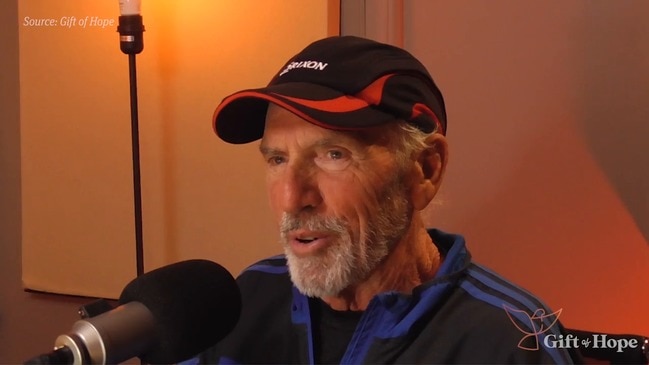
SA News
Don't miss out on the headlines from SA News. Followed categories will be added to My News.
- Adelaide school principal Todd Murfitt battle with Parkinson’s
- How to get the most out of your The Advertiser digital subscription
The Parkinson’s disease that Peter Smith had kept secret for more than a decade is now impossible to hide.
The legendary Adelaide tennis coach walks with a distinct and unmistakeable stoop — a crippling hunched back — and uses two walking sticks to get around.
But the man who once mentored SA tennis greats including Lleyton Hewitt and John Fitzgerald — and spent years as SA’s top-ranked pennant player — is still on the tools, coaching a select group of young players.
These days, however, he shies away from centre court, preferring the relative anonymity of courts far away from the prying eyes of people visiting Memorial Drive’s lounge, gym or swimming pool.
“If you ask me if there’s a sense of me hiding away on Court 32 — yes, there is,” he says.
“For sure. And if you said hiding from what. Well, I guess I feel a degree of being uncomfortable.”
Smith, 68, has opened up about his battle with Parkinson’s to his friend and Adelaide media identity Mark Aiston in a new video series which focuses on mental health, addiction and general health issues.
The pilot episode of the series, called Gift of Hope, opens with a hunched-over Smith relying on walking sticks to hobble along an Adelaide street. It later shows him on the court, hitting balls with two of his pupils Michelle Jaslovska and Alana Repanich.
He can no longer dash around the court but his racquet control is still sharp and his charges speak glowingly and emotionally about their Smith’s coaching prowess and his determined battle with Parkinson’s.
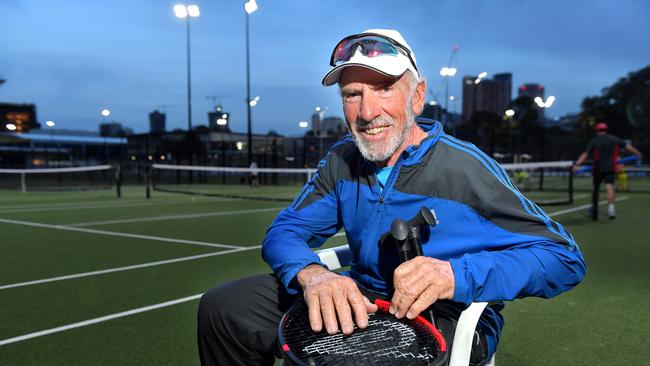
Smith admits he encounters an emotion verging on embarrassment when he sees a reflection of his once-strong frame hobbling along a city footpath.
“One of my dad’s many sayings was that when you lose respect for your own body, you lose respect for everything,” he says.
“And I often think about that, and you kind of look after yourself, and over a period of time I’ve tried to do that.
“So it’s come as much as a shock to me — more so perhaps than other people — to go from where you are quite physically able, and thankful for it — to not being so.
“So when there’s reflections of … where I actually see myself, that’s a bit of a shock to know that I’m at right angles, instead of straight.”
Smith had spent a lifetime maintaining a high level of fitness and strong posture, so his predicament really hit home when he attended a Crows game at Adelaide Oval and a turnstile attendant tried to guide him to a quieter gate.
“That came as a bit of a shock — that I am obviously perceived to be different to everyone else that’s walking around,” he says.
“So it definitely is a bit of a whack to your self-esteem.
“Being in a situation where, at worse, I can be crumpled up — a bit of a mess — it’s definitely bordering on embarrassing.”
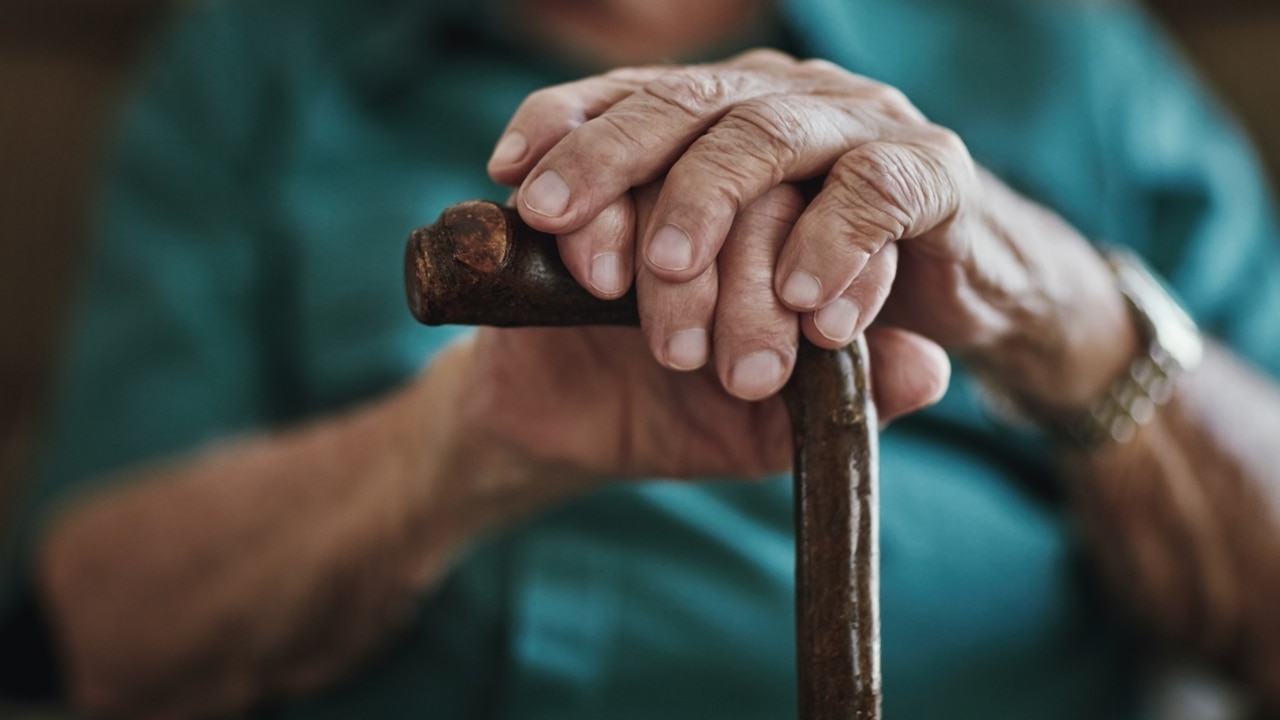
Smith was SA Tennis’s director of coaching throughout an era that produced Fitzgerald, Daren Cahill, Mark Woodford and Roger Rasheed. He has mentored thousands of young players during more than 30 years of coaching, including current Davis Cup captain and former world number one Lleyton Hewitt for nine years.
His Parkinson’s diagnosis came in 2007, 10 years after overcoming another life-threatening disease — a pituitary gland tumour from which doctors gave him just a 20 per cent chance of survival.
Only family and his closest friends knew about his health battles before he went public with the news in 2017. Smith says he had the traditional Australian mechanism of bottling things up and not wanting to bother others with his problems.
He would often go out of his way to hide from view when taking the medication which controlled the contortions wreaking his body.
“It’s like you put up the shutters and you don’t let anybody … it’s like a sign of weakness if you let anybody get close to you,” he says.
“I’ve felt that very strongly for all my life. I have a strong desire to maintain an independence and do everything for myself.”
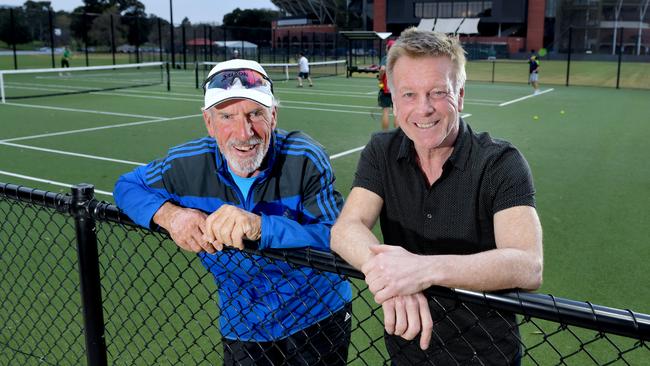
But eventually, the insidious and degenerative development of the disease peeled away the layers of secrecy and forced him to become more open.
“I think … that when you’re dragged, and that is not maybe the right word, down into a certain level, you don’t care anymore,” he says. “Suddenly you lift the shutters a bit and say what you want to say and behave the way you’d like to behave.”
One of the problems he encounters is the common belief that people with Parkinson’s are all afflicted with the uncontrollable tremors that have characterised the plights of famous sufferers such as boxer Muhammad Ali or actor Michael J Fox.
He laments that not more is known about the incurable disease, which manifests in him as a severe form of dystonia — a movement disorder in which a person’s muscles contract uncontrollably.
There are rare occasions he can stand up straight, or lie down straight on a table or a bed, but usually, as soon as he gets up, his body “is all at weird angles”.
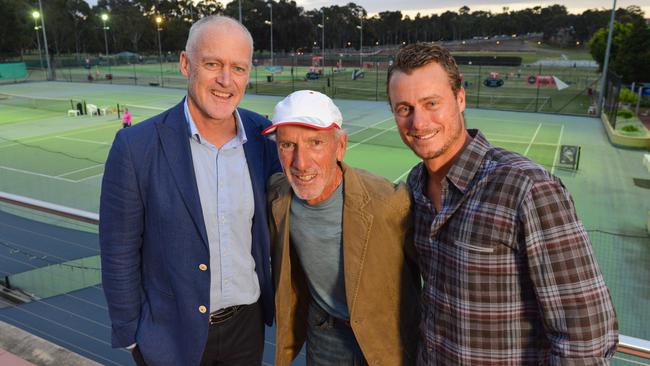
During his 40-minute conversation with Aiston, Smith also opens up about the sleep deprivation that comes with Parkinson’s disease, his mother’s battle with dementia and the responsibility he feels for his wife Bronwyn, boys Brett, Luke and Josh and their families.
He concedes that he is worried he is no longer able to take care of his grandchildren James and Michael as he would like but the disease and its symptoms have provided rare moments of clarity on issues with which he had previously struggled.
“Even though this condition has been with me for 10 to 15 years, it’s only been of late where I’ve felt less on an ego trip on how I could win or beat it or something like that,” he says.
“I feel, in the last 12 months, it’s opened my eyes to a more simplistic way of looking at things, there’s a clarity about certain things.
“I mean, I find it difficult to read over long periods and maintain concentration and not feel exhausted, but at the same time, there are certain things I want to do and I’m passionately driven.”
Aiston, who speaks about his lifelong struggles with gambling, alcohol and drug addiction in today’s SA Weekend, said the Gift of Hope series would tell the stories of those who were going through tough times.
“My aim is to dis-arm those I am interviewing and encourage them to speak from the heart, open up, talk about personal feelings, the effects their mental disorder, disease or injuries is having on them, their family and friends.
“I want them to talk about their fears and hopes, and how they are dealing with them.”
